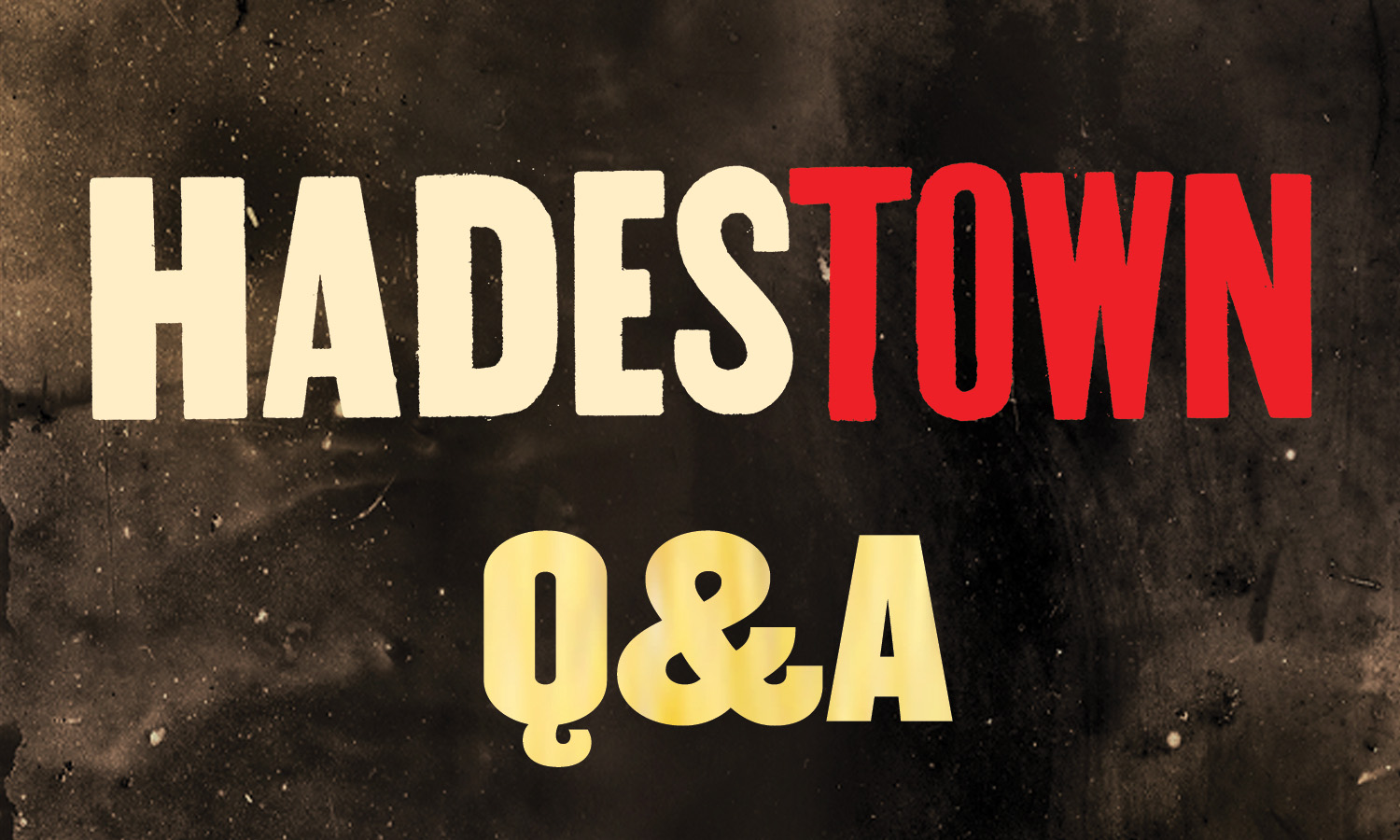News

Hadestown Unveiled: Exploring the Musical Magic in a Q&A
Greetings, fellow theater enthusiasts! We're thrilled to share some exclusive insights into the captivating world of Hadestown, the musical sensation that has been taking the world by storm. Get ready to embark on a journey with Anaïs Mitchell, the brilliant writer and composer of Hadestown, and Rachel Chavkin, the visionary Broadway director behind its mesmerizing production.
Q: What inspired Hadestown?
Anaïs Mitchell, the creative force behind Hadestown, shares a serendipitous encounter that kickstarted the journey. Driving between gigs, the melody of "Wait for Me" descended from the heavens, bringing with it the essence of the Orpheus & Eurydice myth. What intrigued Mitchell the most was pitting the optimistic Orpheus against an underworld governed by unyielding rules.
Q: Rachel, was there something specific that drew you to Hadestown?
Rachel Chavkin, the Broadway director extraordinaire, expresses her fascination with Hadestown's singular musical style, seamlessly blending with traditional storytelling rules. Describing it as the most challenging project she's undertaken, Chavkin aimed to balance the production between a concert experience and a theatrical play.
Q: Anais, you and Rachel seem to be the winning combination. How did you meet, and what has the collaboration been like?
The duo's synergy began when Mitchell, awestruck by Chavkin's work on Dave Malloy’s "Natasha, Pierre & the Great Comet of 1812," sought her out. Hadestown's evolution from a DIY community project to a full-fledged professional musical took three years of collaborative effort. Chavkin's role extended beyond directing; she played a crucial part as a gifted dramaturge, pushing Mitchell to refine the dramatic aspects of the show.
Q: Diversity and inclusion play a significant role in Hadestown. Was this intentional?
While the intent wasn't to build a female-led team, Mitchell acknowledges the empowerment derived from working with many talented women. The decision to embrace diversity in casting was rooted in the belief that theater should depict and celebrate the diversity inherent in humanity.
Q: Rachel, why is creating spaces for diversity and inclusion in your projects important to you?
Chavkin, acknowledging her own privileges, emphasizes the importance of recognizing and addressing disparities. She views diversity as integral to excellence, offering a richer and more meaningful dramatic experience. Chavkin believes that diverse voices in the creative process contribute to a more interesting and stylistically appealing production.
Q: How have out-of-state audiences influenced the editing of the show?
Hadestown's extensive journey, including productions in Canada and the UK, provided valuable insights into regional differences. Audiences in different locations reacted uniquely to humor, tragedy, and musical elements. Chavkin emphasizes trusting the intelligence of audiences while adjusting aspects of the show to resonate with various cultural perspectives.
Q: Orpheus, the optimistic dreamer, was the hardest character to write. Why?
Mitchell explains the challenge of capturing the purity and optimism of Orpheus compared to the more world-weary characters. Balancing his genuine optimism without making it appear overconfident required a nuanced approach to character development.
Q: Certain lyrics in Hadestown take on new significance today. What inspired "To the world we dream about, and the one we live in now"?
Mitchell reflects on the enduring relevance of these lines, emphasizing the beauty in the struggle for a better world. The lyrics serve as a reminder that even in challenging times, there's value in the pursuit of a more just and equitable society.
Q: "Why We Build the Wall" has gained new resonance. Can you discuss your vision for the song's staging?
Mitchell wrote the song in 2006, envisioning a future where climate crisis forces populations to seek refuge. Chavkin aimed for a simple and indisputable staging that mirrors the song's forceful and clear political message. The minimalist approach, devoid of frills, emphasizes the song's inherent power.
Q: In the era of a pandemic, what does Hadestown mean for a post-COVID-19 audience?
Chavkin sees Hadestown as a story about community, a reminder that despite challenges, we are not alone. Mitchell hopes the music will provide healing, and both artists believe the show's themes of resilience, love, and the necessity of believing in each other resonate strongly in the current climate.
As Hadestown makes its way to the Van Wezel Performing Arts Hall from January 30 through February 4, be prepared for a spellbinding experience that transcends myth and speaks directly to the heart of our shared humanity. Don't miss this opportunity to witness the magic crafted by Anaïs Mitchell, Rachel Chavkin, and the talented cast of Hadestown. Book your tickets now for an unforgettable journey into the underworld and back.

